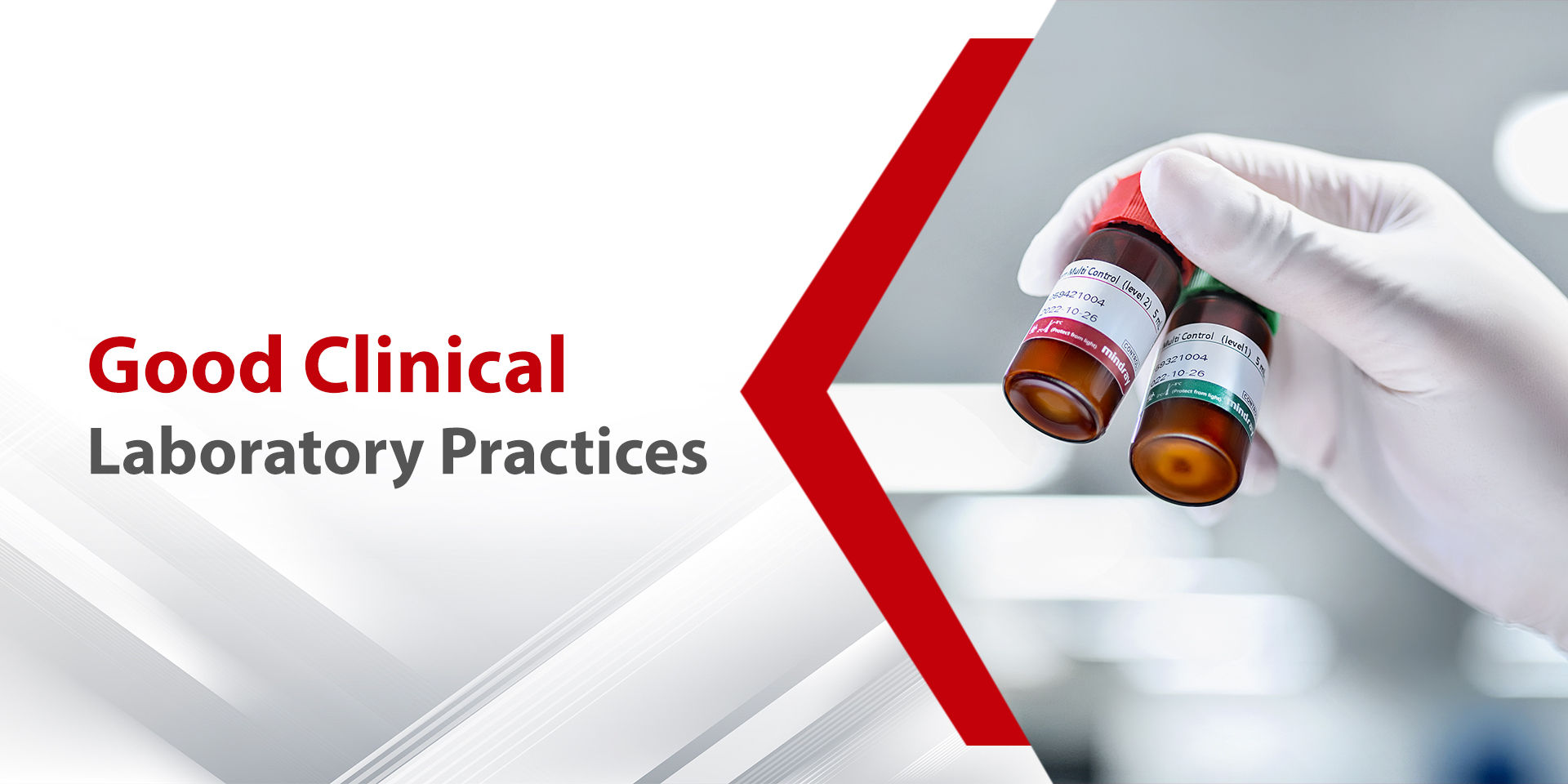Quality Indicators Part-8
By Dr. Jayesh Warade | Sr. Consultant & Sr. Quality Manager, Biochemistry, Meenakshi Labs 2025-04-10

Explore our FAQs on Good Clinical Laboratory Practices (GCLP), addressing quality indicators, data management, and regulatory requirements for medical laboratories in India. Gain valuable insights into tracking lab performance, ensuring robust data integrity, and adhering to key regulations for maintaining high standards of medical laboratory operations as per ICMR 2021 guidelines.
Internal QC is basically the process performed on a day-to-day basis to monitor the real-time performance of laboratory tests. External Quality Control (QC) is conducted periodically and provides an independent assessment of the accuracy of your laboratory's test results. Both internal and external QC are essential for maintaining the quality of laboratory results.
As the name suggests, clinical decision limits is a concentration or level of a biochemical or hematological parameter that guides clinical decision-making. It helps to determine if a patient's result is normal, abnormal, or critically abnormal. To establish appropriate clinical decision limits, follow these steps and search for relevant studies and guidelines. Discuss the needs and preferences of the clinicians, evaluate your laboratory's methods, equipment & the effectiveness of the limits in clinical practice. Adjust the limits based on feedback and experience.
IQC is mandatory. However, there are additional quality control (QC) activities that can complement IQC but should not be considered replacements. These activities might include retaining samples, split sample testing, sample testing correlation with clinical conditions, correlation with other parameters, etc. These additional QC activities can enhance the quality assurance process and help identify potential discrepancies but do not substitute the necessity of IQC.
The Lab Director is responsible for overseeing all laboratory operations. This includes every aspect of laboratory functions, such as testing, staff management, compliance with regulations, and overall operational efficiency. Quality Manager focuses specifically on Quality Management. Their role is to ensure that all processes and procedures within the laboratory comply with quality standards.
Yes, it is mandatory for laboratories in India to have a tie-up with a registered waste disposal or biowaste disposal authority. This ensures that hazardous waste, including reagents and their containers, is disposed of in a safe and environmentally responsible manner.
Measurement uncertainty refers to the doubt that exists regarding the result of a measurement. It is a measure of the variability or error associated with a measurement process. For instance, if you measure 100 mL of distilled water using a measuring cylinder, one person might find it to be 99 mL, while another might measure it as 101 ml. These variations highlight that measurements are not exact, indicating the presence of uncertainty. Similarly, when testing hemoglobin levels, repeated measurements might yield results such as 11.45 g/dL, 11.55 g/dL, or even 10 g/dL. These discrepancies are called measurement uncertainty. Laboratories should document how uncertainties are calculated and monitored periodically. This documentation serves as objective proof when addressing questions about significant variations in test results.
The frequency of equipment calibration should always align with manufacturer guidelines, as these are designed to ensure optimal performance and accuracy. However, if your accreditation bodies, certification bodies, or regulatory authorities specify different calibration requirements, those must be considered.
It is very simple to calculate cumulative value. It is the arithmetic mean or the average of all the values. While the term "cumulative" might seem complex, it simply refers to the process of summing the values and then dividing by the total number of data points.
For the proper disposal of reagents should always follow the instructions provided in the kit insert or manufacturer's guidelines. The kit insert contains detailed protocols on how to safely discard reagents in compliance with safety and environmental standards.
The characteristics of quality indicators are:
Measurable
Achievable
Actionable
Balanced
Timed
Topic: Data Management
Frequently Asked Questions
Various documents are necessary for ICMR, NABH, and NABL certification and accreditation. While the specific requirements may vary based on the activities performed in your laboratory, documents like standard operating procedures (SOPs), laboratory policies documentation, safety manuals, sample collection manuals, quality control procedures etc. are generally needed.
When a laboratory collects samples, performs tests, and issues reports, it holds full responsibility for the accuracy and validity of those reports. Even if a disclaimer states that the report is "not valid for legal purposes," such statements typically have no legal standing. As the laboratory performing the tests and issuing the results, you are legally accountable for the data presented.
The retention period for worksheet documents and backup data varies based on the type of test performed and specific guidelines. Generally, the following retention times apply:Routine Biochemistry and Hematology: Backup data should be retained for 7 days.Biochemistry and Hematology: Some guidelines recommend retaining data for 1 year or 2 years.Histopathology and Cytopathology: Backup data must be kept for 10 years.Electrophoresis and Genetic Testing: These records should also be retained for 10 years.Retention guidelines are established by various authorities, including the Ministry of Health and Family Welfare, medical councils, and court orders. Laboratories should regularly consult these sources to ensure compliance with the latest requirements for data retention.
To ensure compliance with Indian regulations, laboratories must obtain the following mandatory certifications:
Laboratory Registration
Biomedical Waste Management
Pollution Control Board (PCB)Clearance
Fire Safety Certificate
Trade License
Goods and Services Tax (GST) Registration
Employee Provident Fund (EPF) Registration
Building Stability Certificate
While a dedicated paramedical council and registration process are currently being developed, paramedical personnel are generally required to register with the Medical Council of India (MCI). This registration ensures that individuals meet the necessary qualifications and standards for practising in the paramedical field.

